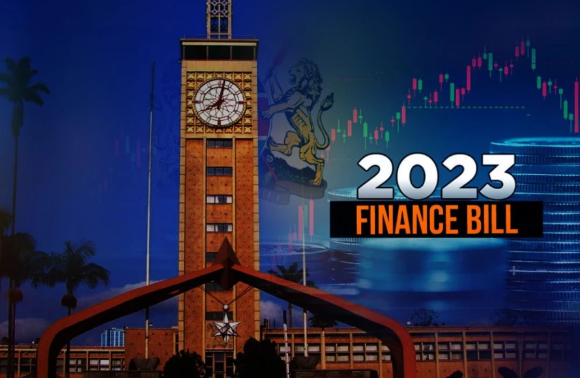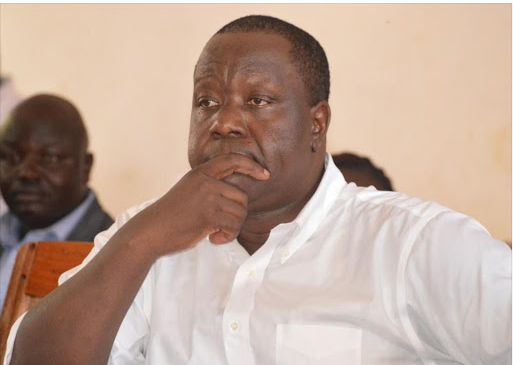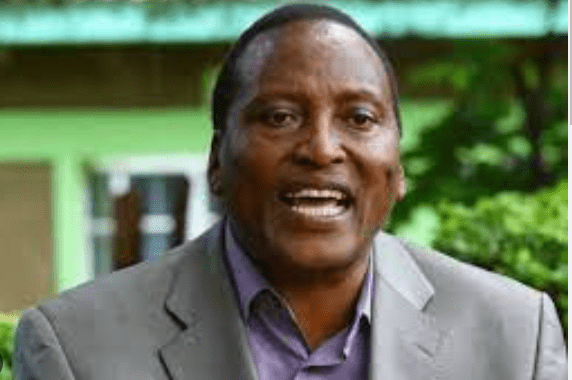Kenya’s Campaigns Come To An End But There Is Still So Much Propaganda

Although the Kenyan presidential election campaign is technically over, the relentless and deadly spread of misinformation online persists as keyboard warriors fight to undermine opponents by spreading false allegations of election tampering, according to experts.
According to Benedict Manzin, a sub-Saharan Africa analyst at UK-based intelligence firm Sibylline, campaigners for the front-runners, Deputy President William Ruto and seasoned politician Raila Odinga, are spreading dozens of posts alleging that their opponent is involved in “vote rigging plans.”
“We are increasingly seeing false information which seeks to delegitimize the results of the election with widespread claims that the opposing side would only win through fraud and that they are attempting to steal the election,” Manzin told AFP.
One strategist for Ruto’s campaign charged Odinga’s team with attempting to rig Tuesday’s election after the 77-year-old advocated for the election commission to use a paper voter list rather than a digital one.
In the meantime, a pro-Odinga blogger claimed that Ruto was trying to rig the election while posting a link to an unrelated video of a politician discussing an old scandal that has since been taken down.
According to Mary Blankenship, a disinformation researcher at the University of Nevada, the spread of unfounded fraud charges might have serious consequences, especially in a nation where previous elections have been followed by violent outbursts.
“It creates an avenue for either of the candidates to discredit the outcome of the polls, which could lead to unrest,” Blankenship told AFP.
She compared the predicament to the 2020 US election, when former president Donald Trump’s allegations of fraud led to a protestor attack on the US Capitol.
Following the hotly contested 2007 elections, interethnic violence in Kenya claimed the lives of more than 1,100 individuals.
During a police assault on protesters after the 2017 presidential election, which was ultimately invalidated by the Supreme Court due to “irregularities and illegalities,” dozens of people died ten years later.
Kenyan civil society organizations and a government watchdog have warned that the flood of false information threatens democracy and have urged social media companies to take action.
Additionally, the authorities have created a unique division to deal with “election and hate speech-related offenses.”
“Part of what this misinformation and disinformation does is that it plays into the stereotypes, preconceived notions and the emotional aspect of voters,” said Mark Kaigwa, team leader at StopReflectVerify.com, a Kenyan organization analyzing disinformation.
“It is a way to energise people and rally them emotionally.”
While platforms like Facebook and TikTok say they are committed to rooting out disinformation and hate speech, observers are skeptical, not least because election influencers rely on codewords to amplify their messages.
“There is a lot of coded language… being used to mask or ensure that these social media platforms don’t identify such type of hate speech,” said Allan Cheboi, a senior investigator at Code for Africa, a data journalism and civic technology initiative.
For instance, some campaigners use the Swahili word “madoadoa” (“blemish”) to attack members of various communities in Kenya, Cheboi told AFP.
Hundreds of incorrect and misleading assertions regarding the Kenyan elections have been refuted by fact-checking organizations, including AFP Fact Check.
Both sides have attempted to disparage the educational backgrounds of their rivals, alleging that Ruto cheated on his university transcripts and that Ruto lied about having studied engineering in Germany.
Despite fact-checkers refuting these assertions, they trended on Twitter for days.
Aside from being drawn into the controversy, mainstream media organizations are also being utilized as fronts for fake websites and social media pages that disseminate untruths about candidates.
“We are constantly having to issue alerts to say this did not originate from our company,” said Citizen TV editor Waihiga Mwaura.
With campaigners falsely attributing them to reliable sources like survey business GeoPoll and The Daily Nation newspaper, phony opinion polls have become a prominent trend.
According to Nic Cheeseman, a political scientist at the University of Birmingham, there are “efforts to make different leaders look even more popular than they are, to create the impression they are winning the elections.”
According to Cheeseman, among other strategies, “negative ethnic stereotyping” is the main misinformation and disinformation we have witnessed in the 2022 elections, which is remarkably similar to the 2017 elections.
British consulting firm Cambridge Analytica used the personal information of millions of Facebook users to target political adverts, some of which capitalized on ethnic prejudice, according to an undercover investigation by UK media.

 The Road to Victory: President Ruto’s Triumph in the August 2022 General Election
The Road to Victory: President Ruto’s Triumph in the August 2022 General Election  Finance Bill 2023- The Benefits
Finance Bill 2023- The Benefits  How Small Businesses Can Use AI to Increase Sales In Kenya
How Small Businesses Can Use AI to Increase Sales In Kenya  Not Today; Matiang’i’s Lawyer Says His Client Will Not Appear Before DCI Today
Not Today; Matiang’i’s Lawyer Says His Client Will Not Appear Before DCI Today  Senator Onyonka Urges President Ruto To Be Careful On How He Handles Matiang’i’s Case
Senator Onyonka Urges President Ruto To Be Careful On How He Handles Matiang’i’s Case  Form One Student Beaten To Death By Teachers Over Alleged Physics Exam Cheating
Form One Student Beaten To Death By Teachers Over Alleged Physics Exam Cheating